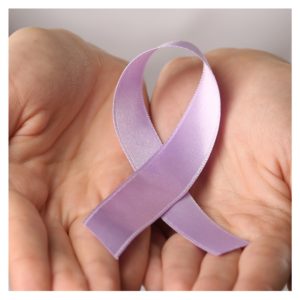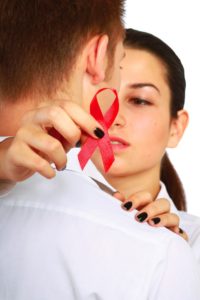Why didn’t’ they tell me cancer treatments would ruin my sex life? (Or What you need to know)
Okay, you’ve been through the worst part. The surgery, the radiation, the chemotherapy, the hormonal therapy. Now you’re on the other side, and trying to get your life back. Trying to return to some sense of normal. You are trying to bolster your relationship with your partner. Trying out…sex? Who knew you’d need to work through sex after cancer treatments.
But it’s not working like you thought it would. Why didn’t anyone tell you this before?
Probably because you had other things to worry about. You were managing treatments, and medications, and procedures. Figuring out transportation, and who would help who, when. And back then, knowing that things were going to change in the sex category, probably wouldn’t have changed your plan. But, maybe it would have helped you be prepared.
There are changes! It doesn’t feel the same, or work the same way. But that doesn’t mean that you cannot have a great fulfilling sex life. Intimacy is essential. Pleasure is important. Communication is key.
Wait, What? We have to TALK about it?
No, you don’t have to. But look at what you want. What do you really want to happen next?
Research shows that talking about it, and having some common goals between you and your partner will get you to the pleasure and satisfaction part faster.
Intimacy Vs Sex
Intimacy is defined as: A close, familiar or loving personal relationship. People can have appropriate intimate relationships with family, friends, and partners. Having common understanding and a feeling of closeness in one or several aspects of life can ease stress and contribute to a feeling of well being.

You can experience intimacy with someone in a variety of ways. You may feel emotionally close to a partner, especially someone that has assisted you and been supportive through your treatment journey. You may feel an intellectual intimacy with a friend that you have deep conversations with about common interests. Intimacy can also be spiritual, financial, recreational, and physical, just to name a few.
Sex, for the purposes of this article, is the physical act, exchange or exertion of sexual energy. It may occur alone, with a partner, or with several. Generally people partake in sex for the pursuit of pleasure. (Although that’s not the only reason) But what do you do when it doesn’t feel pleasurable?
Explore what your reasons are for having sex
Okay, I know this may seem obvious at first. But, think about it a minute. Why do you want to have sex? Are you looking for intimacy? To feel “normal?” Just to feel pleasure? To avoid pain? To have a baby? To feel a sense of belonging? For gratification? All of these are perfectly good reasons to have sex. Understanding your own “why” will help sort out what to do to help you get the solutions you need.
Sex for physical pleasure is valuable, and not to be discounted. Both men and women benefit from safe, consensual, physically pleasurable experiences, whether or not orgasm is experienced.
Are you seeking sex primarily for intimacy? Do you need to feel close to another? If so, look at different ways someone can build intimacy in a relationship. Communicating with your partner about your needs and desires are a great step.
What are barriers to having sex after cancer treatments?
Thera are several things to consider when returning to sex after cancer treatments. Both physical changes and psychological concerns will play a roll.
The side effects of surgeries and medications may be affecting your body’s ability to perform typical sexual activities. Most patients experience physical changes to some degree. Here ae some of the most commonly reported challenges, along with things that can help.
Physical Changes that can happen after cancer treatments
- Pain in genitals- discuss with your doctor for medication options, also consider gentle stretching of painful tissue, self massage of the area, scar tissue mobilization, pain management strategies such as breathing and visualization. In some cases vaginal dryness plays a part in pain during penetrative sex. Good quality lubricant will help a lot.
- Decreased sensation– gradually explore self care and gentle touch of the surrounding areas to reinforce sensation between the brain and the area of the body. Work on reducing guarding, and focus on identifying pleasurable sensations in the area. Good lubrication is also a great tool to improve sensation.
- Inability to get an erection– recovery and neurological healing can take a while. Utilizing devices that help you get an erection will continue to circulate blood through the erectile tissue in the penis. This helps to reduce fibrosis and tissue restriction during the healing process. Also, you can use your penis for penetration, like today, if you feel up to it…so that’s awesome.
- Vaginal Dryness– Mucosal linings can be affected by medications and hormonal changes. Use appropriate lubrication for improving clitoral stimulation, and reducing friction on tender parts of your vulva and in the vagina. (For more information about lubrications click here)
- Decreased desire– medications, body changes due to surgeries, and mood changes affect your desire to have sex and intimacy. Some people are fine with this, and simply choose to have less sexual activity at this time of healing. If decreased desire is problematic for you, start with the biggest and most influential sex organ, the brain. Thinking about sex helps you, well, think more about sex. Look for opportunities that used to inspire you, in a romantic way. Consider that, in this new life, there are probably things that also turn your brain “off” to sex. This is not because things are not attractive enough, it is simply life getting in the way. We have so many things that need our attention. Many of them are not sexy. Try to notice what those things are. How can you minimize them? Find things that will get you to thinking about romance in your daily activities. Can you balance the” turn offs” with more “turn ons?”
In addition to the physical challenges, dealing with changes to your body and lifestyle can have a significant emotional tax. It can be hard to let go of how things “used to be”. Being willing to discover what works in your new situation will pave the way.
Emotional barriers to consider, Ask Yourself
Can I have an orgasm?
Can I get an erection?
Is it a pleasurable experience?
How do things work now?
Can I accept how great my body is in this new form? (even when it might be different than before)
Can I feel comfortable trying out new things to find what works?
Does it feel safe?
Figuring out what works for you to answer these personal questions will take time, patience, and kindness to yourself. Your recovery has been a long journey. It is great that you are feeling well enough to reintroduce this part of your life. You can find solutions.

Don’t give up!!!- keep trying different things until you find what work for you
Be accepting of Change- change can still work. Being flexible gives you more options than pass/fail.
Embrace your new body- your body is amazing for bringing you this far. Don’t give up on it now.
Communication is the key- when it comes to partner intimacy and sex after cancer treatments, talking through how you feel enhances BOTH. Having common goals, and expectations can make all the difference.


